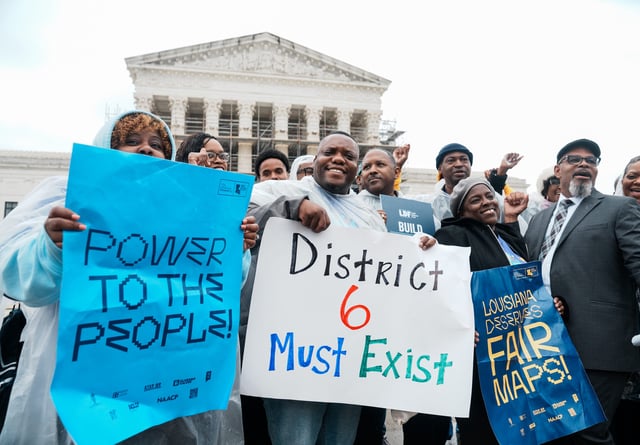Overview
- The justices restored Louisiana v. Callais to the docket for additional oral arguments in the next term, with scheduling details to be issued soon.
- The decision delays a final ruling and ensures the GOP-drawn map with two majority-Black districts remains in place for the 2026 congressional elections.
- A group of 12 non-African American voters challenged the map as an unconstitutional racial gerrymander under the equal protection clause.
- Justice Clarence Thomas dissented from the order, arguing that the court has a mandatory duty to resolve redistricting challenges promptly and limit race-based drawing.
- The outcome will shape legal guidance on merging Voting Rights Act obligations with the 14th Amendment and could affect the balance of power in the House.



